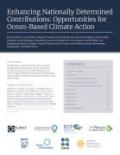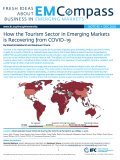
This paper outlines the best ways countries can use ocean-based action to curb greenhouse gas emissions and better adapt to the impacts of climate change. The paper focuses on four ocean-based subsectors that have the greatest potential to curb emissions and deliver significant other benefits: marine conservation (coastal and marine ecosystem restoration and protection), oceanic and coastal fisheries, marine transport, and ocean-based renewable energy.
Tourism increasingly plays a central role in Uganda’s economy, while featuring strongly in COVID-19 recovery responses. The tourism sector offers opportunities to generate income and jobs while protecting Uganda’s vast wildlife and biodiversity, and strengthening cultural heritage.
The objective of this study is to fill the knowledge gaps to help advance Albania's vision of the Blue Economy, in the context of the country's aim of joining the EU.
This study calls for enhanced sharing of ocean data and stronger investment in national statistical systems for collecting and harmonizing ocean data. It underscores the need for enforcing international conventions, norms and standards in relation to maritime shipping, sustainable fisheries and marine pollution.

This note explores the factors in specific tourism destinations that contribute to pandemic-related vulnerability, as well as the factors that support the resilience of the tourism sector. Examining all these factors together provides a snapshot of the countries as well as the subsectors that are most likely to recover first, as well as those that will require greater support to weather and recover from the crisis.
